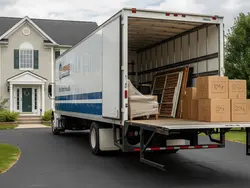Healing Our Heroes - Editorial

EDITOR’S NOTE: In the February 2025 issue of FAMILY, we ran a story entitled International Overdose Awareness Day: A Call for Collective Action. This story featured an advertorial written by Foundations Recovery Network’s Vice President, Substance Use Disorders Chad Koller. Unfortunately, we also attached Donna Boyle Schwartz’s (one of our regular contributors) name as the author of the piece. Donna Boyle Schwartz was not, in fact, the author of the advertorial, and she had no part in the writing, editing, or publishing of that advertorial. It also identified Foundations Recovery Network as a non-profit organization, which is no longer accurate. Below is the feature story, written by Donna Boyle Schwartz, highlighting the work of Foundations Recovery Network.
Veterans and their families often face grim odds when transitioning from military to civilian life: An estimated 1 in 15 veterans struggles with a substance use disorder, and veterans with substance use disorders often experience mental health issues, with more than 25% suffering from depression and approximately 1 in 5 diagnosed with post-traumatic stress disorder. Additionally, veterans with substance use disorders are more than twice as likely to die by suicide and three times more likely to be homeless.
In spite of these bleak statistics, however, there is hope for these heroes and their families: The health services organization Foundations Recovery Network has been setting the standard for integrating mental health and substance use treatment since 1995. Now part of the Behavioral Health Division of Universal Health Services (UHS,) the organization served approximately 17,000 military and veteran personnel with mental health and substance use treatment services in 2024 alone; these military personnel were some of the estimated 700,000 patients a year served by UHS.
The results have been encouraging: At one year post treatment, patients reported on average an 80% decrease in alcohol use, intoxication, drug use, and multiple substance use in the past month compared to reported use at intake.
“At Foundations Recovery Network, our goal is to empower individuals to find their unique path to recovery from co-occurring addiction and mental health disorders so they can achieve lasting connection and stability in a recovery-focused life,” explains Vice President of Military Programs, Sheri Hanson, who is also a veteran of six years as a U.S. Navy officer in the Medical Service Corps. “Our vision is to help create life-time relationships for long term recovery. It is our fundamental belief that anyone can recover. We meet people where they are, with acceptance and not judgement. We continue to focus on our mission of being the leader in evidence-based integrated treatment for individuals with co-occurring mental health and substance use disorders through delivery of clinical services, education, and research.”
Foundations’ parent organization, UHS, operates the Patriot Support Programs, guided by an advisory board of military veterans, out of a need to connect U.S. military personnel, veterans, and their families with vital behavioral health and substance use treatment services.
“The strain of multiple deployments and separations in recent decades has worn greatly on the bodies, minds and spirits of service members, veterans and their families,” Hanson points out. “It is not uncommon for active-duty service members and veterans to struggle with depression, post-traumatic stress (PTS), addiction and other behavioral health issues.”
Hanson has a long history of serving the military community. Prior to joining UHS, she served as senior director at United Health Group, where she prepared the solution design and proposal response for the Veteran Administration Community Care Network (VA CCN) covering 20 million people. Additionally, she formerly served as the acquisition directorate director for the U.S. Department of Veterans Affairs in Washington, D.C., where she developed the strategic acquisition plan for the Community Care Network Next Generation contract for the U.S. and Pacific Islands estimated to be valued at $130 billion.
The Patriot Support Programs offer behavioral healthcare to military members, veterans, and their families through a network of 34 sites across the nation, all of which are participating network providers with TRICARE® and the VA Community Care Network.
Foundations Recovery Network offers a full continuum of care for behavioral health and substance use treatment at facilities across the country, including:
- Medically supervised detoxification/stabilization
- Residential programs
- Full-day and half-day programs
- Intensive outpatient services
- Aftercare and alumni services
- Family support programs
Chad Koller, Vice President of Substance Use Disorder Services, oversees more than 11 facilities, providing strategic leadership, meeting operational goals, and ensuring that facilities deliver high quality patient care. According to Koller, his goal is to develop a multidisciplinary team approach that can offer the best possible treatment and outcomes for patients. Koller says his mission is best expressed by a pair of personal mottos: “Be in service to others,” and “Leave your ego at the door.”
“Our extensive network of mental health and substance use treatment facilities throughout the U.S. connects military, veterans, and their families with needed services,” he points out. “We also serve outside the continental U.S. with a process to get those in need of our services stateside where they can receive treatment. We have developed standard protocols for ease of coordination with military case managers at Military Treatment Facilities, Behavioral Health Centers and the VA. We offer an expedited admission process through the Patriot Support Programs as well as a discharge planning process. We also offer a variety of in- person and telehealth service programs in our network of care.”
One such facility dedicated to assisting veterans is the Black Bear Lodge, located in the mountains of rural Georgia. “Black Bear’s setting allows patients an opportunity to connect with themselves through nature and outdoor activities,” explains Jennifer Hoodecheck, LCSW, Director of Clinical Services for the facility. “Black Bear’s staff understands the complex dynamics that military families face. Working with active-duty personnel, veterans and family members to offer trauma sensitive care, master-level clinicians help patients move from surviving to thriving.”
Hoodecheck is a former military spouse, former Department of Defense employee, and mother of a veteran, experiencing firsthand the stressors and joys that a military family can experience. “There is nothing better than seeing the light, the hope return in someone,” she asserts, noting that Black Bear Lodge takes a compassionate team approach that fosters a serene, supportive place for people to recover.
Hoodecheck previously served in the Army’s Family Advocacy Program, working with family members in the areas of sexual and family violence. She was a trainer for the sexual assault program for active-duty personnel. A licensed clinical social worker, Hoodecheck is a certified trauma therapist, having spent most of her career working with people impacted by family violence, sexual violence, military trauma, and trauma as a result of substance use disorder. “I have seen the resiliency of the human spirit and the ability of people to heal,” she shares.
The organization is dedicated to providing world-class care for service members and veterans, as well as offering behavioral health care services to family members, including children and adolescents. Patriot Support facilities across the nation hire staff with prior military and/or VA experience.
“This aids in fostering compassion and empathy among our team members when treating patients from this unique population,” Hanson asserts. “We provide unparalleled support to active-duty service members facing a variety of behavioral health challenges. Recognizing the unique stressors and experiences associated with military service, our facilities offer comprehensive and personalized care for issues such as PTSD, depression, substance use, and combat stress. With dedicated staff, psychiatrists, and physicians, our network of 34 Patriot Support facilities works closely with referring agencies and military liaisons to ensure seamless communication and tailored treatment goals for active-duty personnel.
“For military families, our Patriot Support facilities offer comprehensive support to help them navigate the challenges that come with military life,” she continues. “We recognize the importance of family in the recovery process, and our family-oriented programs aim to foster understanding, healing and unity. Through counseling, education and group therapy sessions, our facilities provide families with the tools and resources they need to support their loved ones and promote healthy relationships, resilience and growth.”
The organization gets the word out to military personnel and their families by collaborating with nurse case managers and providers on military bases and within VA Medical Centers when they have a patient who needs behavioral health services. The group also participates in resource fairs on and around military installations, and other community-based events where veterans are likely to attend; there are also referral options online at foundationsrecoverynetwork.com The organization also recently launched a national assessment program for the Army Reserves to proactively identify service members who are at risk of suicide or substance use disorder with a toll-free number: (888)-505-1475.
In Their Own Words
Former patients of Foundations Recovery Network and its parent company, Universal Health Services, are eff usive in their praise for the organization’s assistance and support:
“There is no stigma for asking for help—it is our duty of our soldiers to be well. UBH is a game changer military treatment facility for those service members suff ering from PTSD, depression and anxiety. UBH saved my life without a doubt. UBH’s professional staff provided me with uniquely tailored care for my PTSD and depression.”
“I wish I could provide each one of you a ‘HOPE’ coin for your continued dedication to our ‘wounded’ PTSD veterans who suff er from their emotional scars. Your compassion is seen through your actions and I thank you so very much!”
“I could not do this on my own. I had many demons to face and with UBH’s assistance, I’ve found a new life. Thank you for providing this specialized program only for the military. You have given me and many warriors a second chance at life.”
“I just wanted to take a minute to check in with you. I have been doing very well and am still sober. It doesn’t seem like it has been that long, but I am about to hit eight months. There have been some struggles but the foundation that you gave me has been crucial to my development and success. Thank you for the hard work and patience that you gave to me and continue to give daily. Your hard work and dedication saved my and my daughter’s life. Thank you.”
Ready for your next move?
Our PCS Hub has checklists, base guides, and all the tools you need for a successful relocation.
Explore the PCS Hub



